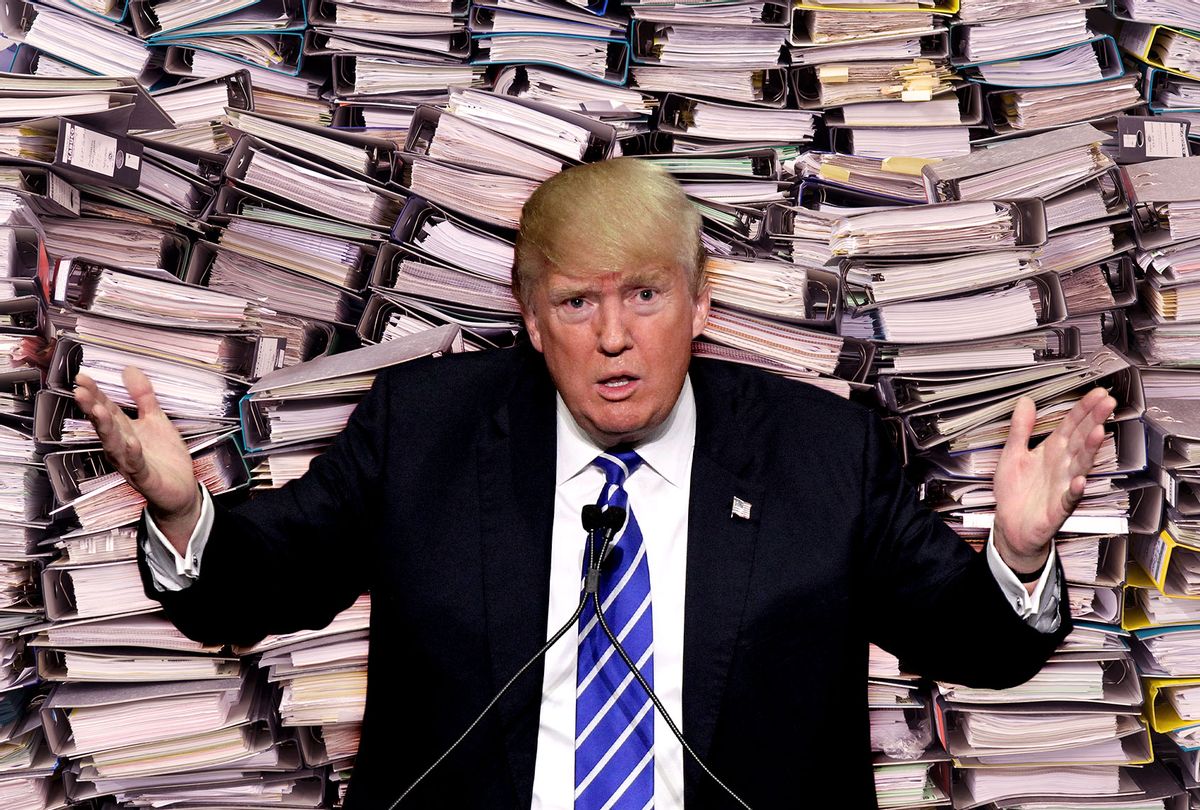During his four years in the White House, former President Donald Trump was known for tearing up documents — and some of the documents he didn't tear up or shred found their way to Mar-a-Lago, where in January, the U.S. National Archives and Records Administration retrieved 15 boxes of documents, according to the Washington Post. Moreover, a forthcoming book by the New York Times' Maggie Haberman reports that a White House toilet was repeatedly clogged with printed paper, although Trump is denying that he flushed any documents down the toilet.
Liberal Washington Post opinion columnist Eugene Robinson, in his February 10 column, notes that some pundits have been saying that Trump's failure to obey the Presidential Records Act of 1978 is no big deal — or as Robinson calls it, the "Trump will be Trump" argument. But the columnist lays out some reasons why it is, in fact, a big deal.
"The Justice Department should indeed investigate whether Trump broke the law by destroying, stealing or flushing official documents that he was required to preserve and surrender to the Archives," Robinson argues. "Granted, it is much more urgent that Justice investigate whether Trump committed the crime of seditious conspiracy by inciting the January 6 insurrection at the Capitol. But the question of the documents cannot simply be dismissed with a 'Trump will be Trump' shrug."
Trump is infamous for failing to practice what he preaches. During his 2016 campaign, Trump had a lot to say about the Hillary Clinton e-mail controversy — and at one of his rallies, Robinson recalls, he told the crowd, "People who have nothing to hide don't.… destroy evidence to keep it from being publicly archived as required under federal law."
Under the Presidential Records Act of 1978, White House documents must be preserved. And the U.S. National Archives and Records Administration is responsible for maintaining them, which is why NARA retrieved those 15 boxes of documents from Trump's Mar-a-Lago resort in South Florida.
"Most critical, obviously, is whether the security of highly classified information might have been compromised," Robinson explains. "But the completeness and continuity of the historical record is also important. Unlike his cluttered business headquarters in Trump Tower, the Oval Office never belonged to Trump — or to any other president. It belongs to us, the American people, and so does the flood of paper that passes through."
Robinson adds, "And while the Justice Department has to be deliberate in deciding whether to launch any investigation, let alone one into the actions of a former president, Congress is under no such constraint. Let's have some hearings, people."
E-mail had yet to be invented when President Jimmy Carter signed the Presidential Records Act into law back in 1978, but the federal law now includes electronic and digital documents as well as physical documents. Robinson doesn't give former Secretary of State Hillary Clinton a pass over the e-mail scandal, but he stresses that what Trump did was worse because it was "deliberate" rather than merely "careless."
"In one month alone, September 2016, the GOP-led House Oversight and Reform Committee held five days of 'emergency' hearings about Clinton's e-mails and issued a dozen subpoenas," Robinson notes. "Clinton was indeed careless, but Trump appears to have been both deliberate and persistent in his unlawful destruction of documents. Either the Presidential Records Act means something, or it doesn't. Congress must choose."




Shares